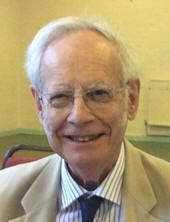Catholic Medical Quarterly Volume 71(1) February 2021
Papers
Are we fighting the wrong battle?
Dr Ian Jessiman, FRCP. Retired GP
 Given
the existence throughout human history of a wide variety of forms of abuse
(notably sexual, including paedophilia, and racial) it seems surprising
that the phenomenon has only achieved open recognition in recent years. In
large part this revelation can be ascribed to the advent of the internet.
Such movements as ‘Black Lives Matter’ and ‘#MeToo’ have been the result.
“Unconscious bias” has recently been postulated as a factor in these
horrifying events and attempts are being made to provide retraining for
people to eliminate it. But it seems surprising that the concept of Human
Nature seems not to have been invoked.
Given
the existence throughout human history of a wide variety of forms of abuse
(notably sexual, including paedophilia, and racial) it seems surprising
that the phenomenon has only achieved open recognition in recent years. In
large part this revelation can be ascribed to the advent of the internet.
Such movements as ‘Black Lives Matter’ and ‘#MeToo’ have been the result.
“Unconscious bias” has recently been postulated as a factor in these
horrifying events and attempts are being made to provide retraining for
people to eliminate it. But it seems surprising that the concept of Human
Nature seems not to have been invoked.
The notion of Human Nature it is true, is ill-defined, but it does highlight certain innate characteristics, most of which are more recognisably animal than human. The one that heads the list in any analysis is the instinct for survival. Closely associated with this we find that, as social animals, we tend to form mutually supportive groupings (or ‘herds’). Such groups vary in dimension from the family upwards. They are not necessarily incompatible with one another or mutually exclusive, and larger groups may include several smaller ones.
An individual will probably group with his family, his friends and neighbours, the fellow members of a club or the citizens of his town or nation. Perceived crowding, commonplace in many modern cities, encourages resort to grouping.
At the same time inclusion in a group is not entirely automatic. Anyone who seems not to fit certain criteria is excluded. One obvious criterion (even if completely unconscious) is physical difference. Almost any deviation from the perceived norm, including minor but easily visible anatomical anomalies, can lead to exclusion from the group and finds ready expression in the practice of bullying. Racial differences provide a glaring basis for exclusion.
This suggests that harmony between groups, particularly where there are perceptible racial differences, is not something that can be expected as a norm, but rather something only to be achieved by hard work. The stronger the ethos of a group, the more likely is it to incite the antagonism (‘phobias’) or enmity of other groups. The Church, since the time of Christ, has preached the love of neighbour regardless of their superficial characteristics (e.g. the Good Samaritan), but God’s approval of exclusive herd behaviour would seem to be implied in much of the Old Testament.
Approached in this way the goal of racial harmony appears as something which is not to be automatically expected but something we have to strive for from the outset. If abusive behaviour is the result of our innate instincts, the battle to overcome such tendencies is bound to be hard one. Such innate tendencies may provide some explanation for individual behaviour, but it does not undermine human responsibility or excuse ill treatment of other people. Does this tally closely with the concept of original sin? Perhaps we could call it ‘Original Temptation’?
But if survival is important for the individual, it is also important for the race, and the urge for reproduction is another instinct inherent in human nature. This, then, becomes entangled with the instinct for power and control (which, indeed, is also a factor in bullying). As we see in the animal kingdom the instinct of the male to reproduce is fiercely competitive, sometimes without any obvious consideration for the female. In the Scholastic system, individual souls, being the work of the Creator, were seen as potentially perfect and the idea of ‘inbuilt flaws’ would have been abhorrent – but for original sin. Sexual temptations were seen as the work of the devil. Such things as sexual abuse were not recognised or were considered so rare (because unbelievable) as not to be taken into account. 'In primitive societies where reproduction was essential to the survival of the race, homosexuality was commonly seen as a grave defect and hence strongly to be condemned. In the present day, when overpopulation is considered by many as a more realistic problem, homosexuality is no longer such a threat and may even be viewed by them as just another aspect of God's creation.
To return to our original topic, if abusive behaviour is a possible outcome of our innate instincts (‘original temptations’) the battle to overcome such tendencies is bound to be a hard one. Leaving any theological debate about such matters to the theologians, it is clear that the Church has to lead us in recognising and combatting any inherent tendency to maltreat others. Along with the institutional Church, we all have a long way to go.
